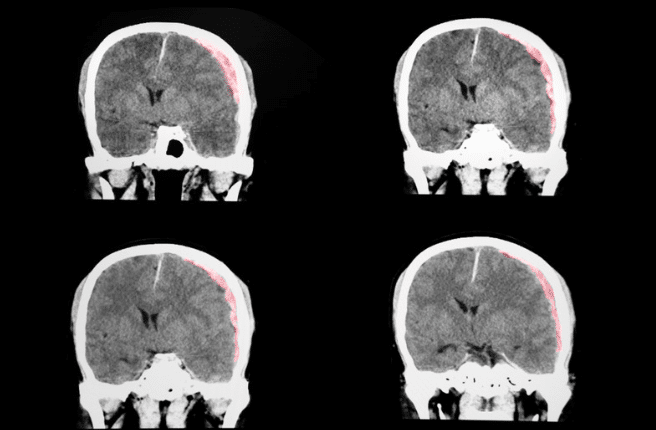What is the Criteria for 70% TBI Disability Rating?
What is the Criteria for 70% TBI Disability Rating? After VA grants service connection for Traumatic Brain Injury (TBI disability), VA must determine the correct rating percentage. As a result, the rating percentage determines how much money VA must pay to the veteran. Rather than assign percentages subjectively, VA uses criteria in the Schedule of Ratings.
VA Schedule of Rating Criteria for 70% TBI Disability Rating
The VA Schedule of Ratings breaks down disabilities into different categories. Firstly, each category contains groups of medical problems. Secondly, each group contains a list of disabilities, and each disability has its own diagnostic code. Thirdly, every diagnostic code specifies the symptoms required for various ratings. For example, the 8045 diagnostic code covers residuals of Traumatic Brain Injury (TBI).
How is a TBI disability rated?
The VA divides the rating criteria for TBI disability into 10 categories.
Veterans are rated based on the level of severity and impairment in each of these areas:
1. Memory, attention, concentration, and executive functions, including goal setting, planning, self-monitoring, and flexibility in changing actions when they are not productive.
2. Judgment: a veteran’s ability to make reasonable decisions.
3. Social interaction: how often a veteran acts appropriately in social situations.
4. Orientation: a veteran’s awareness of who, where, and when he is.
5. Motor activities: a veteran’s ability to perform previously learned motor activities (such as riding a bike).
6. Visual-spatial orientation: A veteran gets lost, even in familiar surroundings, or cannot point at or name their own body parts.
7. Subjective symptoms: symptoms that cannot be measured with objective tests, such as panic attacks and thoughts of suicide.
8. Neurobehavioral effects: examples include lack of motivation, verbal aggression, physical aggression, and lack of empathy.
9. Ability to communicate: Can the veteran communicate either by spoken or written language or communicate basic needs?
10. Consciousness: Is the veteran in a coma or a vegetative state?
Traumatic Brain Injury (TBI) residual scale
VA rates TBI residuals on a scale of 0, 1, 2, 3, or total. Each increment corresponds to a disability rating:
- 0 = 0% (normal functioning)
- 1 = 10% (mild)
- 2 = 40% (moderate)
- 3 = 70% (severe)
- Total = 100%
The VA will award a 100% TBI disability rating if any residuals of TBI are rated “total”. Conversely, the VA will assign a percentage based on the highest-rated residual if no residual is rated “total”. For example, let’s say a veteran has TBI residuals in 3 out of the 10 categories. Therefore, he has a 1 for Judgment, a 3 for the ability to communicate, and a 2 for orientation. In this example, VA will award 70% because 3 is the highest residual rating.
70% TBI Disability Rating Varies
Across the 10 residual categories, the criteria for a 70% rating varies. For example, a Neurobehavioral residual must interfere with or preclude workplace interaction, social interaction, or both on most days. By contrast, VA assigns a 3 if Motor activities are moderately decreased due to apraxia. When in doubt, one should consult diagnostic code 8045 and the associated tables.
The following examples would yield a 70% disability rating for TBI:
- A 50 year-old veteran who is often disoriented in time and place.
- A 35 year-old veteran whose social interaction is inappropriate most of the time.
- A 70 year-old veteran who is unable to communicate either by spoken or written language about half of the time.
Special Monthly Compensation
A veteran may receive special monthly compensation, in addition to a 70% rating, for Traumatic Brain Injury (TBI). As a result, the question is simple: Does your 70% rated TBI disability render you so helpless that you require the regular aid and attendance of another person?
Disability Help Group Case Study
Disability Help Group represented a veteran of the Army who had TBI at 10%. After increasing his rating to 70% for Traumatic Brain Injury, we continued fighting for him to receive special monthly compensation. We were able to prove that he could not care for himself, because the local VA hospital appointed his mother as his VA caregiver. Among other duties, she assisted with medication management, personal hygiene, reminding him of and taking him to appointments, and paying his bill. Therefore, we proved the veteran had a permanent need for regular aid and attendance due to his TBI.
As a result, VA granted Special Monthly Compensation at the (r)(2) rate, increasing monthly payment from $264.02 to $8,343.91.
Do you believe you meet the criteria for a 70% rating for TBI disability? Be sure you start your claim the right way and apply for all the benefits you deserve. Call our team of experts today at (800) 800-3332 or contact us here for your FREE consultation!
Related Articles
- Traumatic Brain Injury (TBI) C&P exam
- How does VA rate Traumatic Brain Injury (TBI)?
- How to Appeal a Denied TBI Claim?
- What is VA Permanent and Total Disability?
- Can I Work and Get TDIU?







